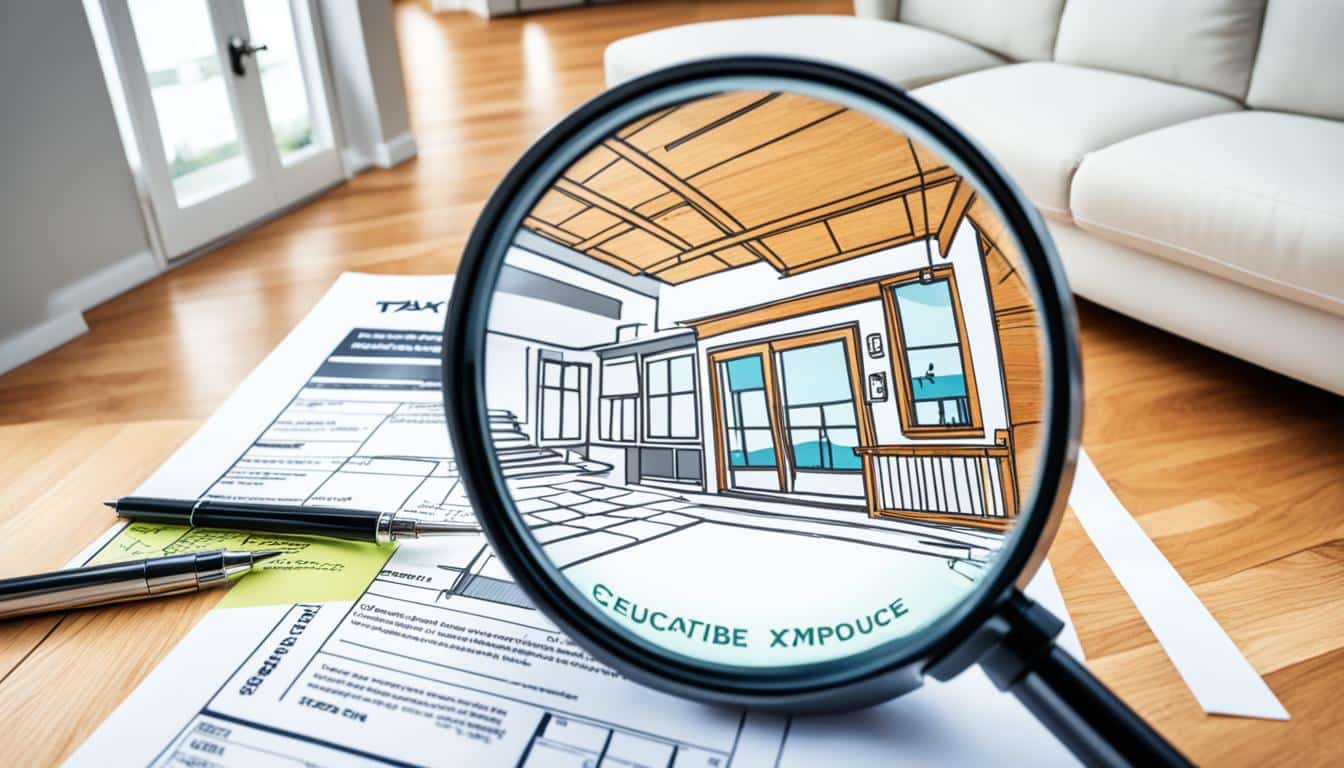Ever thought your new hardwood floors could lower your taxes? Many homeowners do. They look for tax breaks as they improve their homes. But, before you start, let’s talk about what you can deduct.
The IRS is strict about home improvement deductions. Most costs don’t qualify. But, there are ways your home makeover could help at tax time.
You can’t deduct new carpet directly. But, some upgrades can increase your home’s value. This could save you money when you sell it. Think of it as saving for later.
Are you ready to learn about home improvement tax benefits? We’re going to explore deductions and loopholes. These could make your next project cheaper.
Key Takeaways
- Most home improvements aren’t directly tax-deductible
- Capital improvements can reduce capital gains taxes when selling
- Joint filers can exclude up to $500,000 in home sale profits
- Keep detailed records of all renovation expenses
- Special deductions exist for home offices and rental properties
- Energy-efficient upgrades may qualify for tax credits
- Medical necessity renovations could be fully deductible
Understanding Tax-Deductible Home Improvements
Upgrading your home can be a smart tax move. Did you know many homeowners plan big renovations soon? Let’s explore how capital improvements can help you with taxes.
What Qualifies as a Tax-Deductible Home Improvement
Not all home projects are the same for the IRS. Improvements that raise your home’s value, extend its life, or change its use are usually deductible. Think about remodeling your kitchen, updating big systems, or adding insulation. These can increase your home’s cost basis, which might lower your taxes when you sell.
The Difference Between Home Improvements and Repairs
Improvements can lead to tax benefits, but repairs don’t. Fixing a leaky faucet is maintenance, not an improvement. But, installing a new, efficient water heater is an improvement. Remember, repairs for a home office or rental can be fully deducted, so keep track of those costs.
How Home Improvements Affect Your Tax Basis
Improvements can boost your property’s tax basis, which can lower your tax bill when you sell. Some improvements, like energy-efficient upgrades, might even get you tax credits. Installing solar panels or geothermal heat pumps could get you up to 30% back on costs. But, don’t wait too long, as some credits expire.
Learning about home improvement tax deductions can save you a lot. Whether for your home, office, or rental, keep good records. Your future self will thank you!
Is New Flooring Tax Deductible?
Are you wondering if you can write off that new hardwood floor? Let’s explore floor replacement tax benefits and find some ways to save money!
Personal Residence Considerations
New flooring in your home isn’t tax-deductible. But, if you made improvements for health reasons, you might get a deduction. The IRS lets you deduct medical home improvements over 7.5% of your income. This can be a big help, with people saving about $17,000 a year.
Home Office Deductions
If you work from home, you could save a lot. You can deduct $5 per square foot of office space easily. Plus, you can deduct parts of your utility bills, mortgage interest, and even depreciation. Just make sure your office is only for work.
Rental Property Upgrades
Landlords, you have good news! Upgrades like new flooring can be deducted. But, repairs can be deducted all at once, while improvements spread out over time. A $10,000 roof fix can be fully deducted this year, unlike an improvement which would be spread out.
Keep all your receipts and talk to a tax expert to get the most from your upgrades. Happy fixing!
Special Circumstances for Flooring Deductions
Think your new hardwood floors are just for looks? Wrong! They might help you save money on taxes. There are special cases where you can get money back for your home upgrades.
Got a home office? You’re lucky! You can deduct all the flooring costs for that area. It’s like your home office is saying, “Good job!”
Landlords, you have something to celebrate too! The new floors in your rental property are fully deductible. It’s a big win for you.
Planning to sell your home? The new floors could lower your taxes. Adding their cost to your home’s value can reduce your taxes when you sell. It’s like your floors are paying you back.
Home renovation expenses can be tricky. Always talk to a tax expert to make sure you’re doing it right. Keep your receipts ready – they could save you money.
- Standard vs. itemized deductions: Choose wisely based on your situation
- Medical necessity: Doctor-recommended flooring might qualify for deductions
- Energy efficiency: Some eco-friendly flooring could earn you tax credits
Your new floors might not always be a direct tax write-off. But, they could still help you save money at tax time. Who knew taxes could be so exciting?
Conclusion
You’ve learned about home improvement tax deductions. Now, let’s talk about saving taxes. Is new flooring tax deductible? It’s not always easy to say yes or no.
But don’t worry, there are ways to save on taxes. If you work from home, new flooring might help you save. Landlords can also save by improving their rental properties. And if you need better access at home, you might get tax breaks.
It’s important to know the difference between fixing things and making them better. This is key for your taxes and your home. Before you start your next project, think about talking to a tax expert. They can help you save more on taxes and avoid problems with the IRS.








